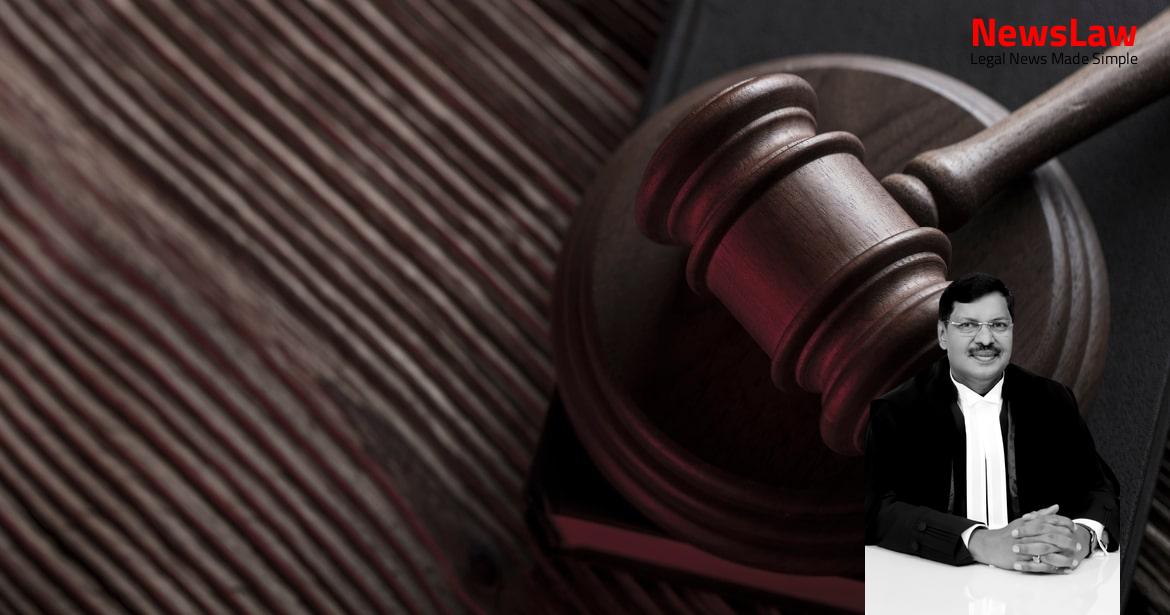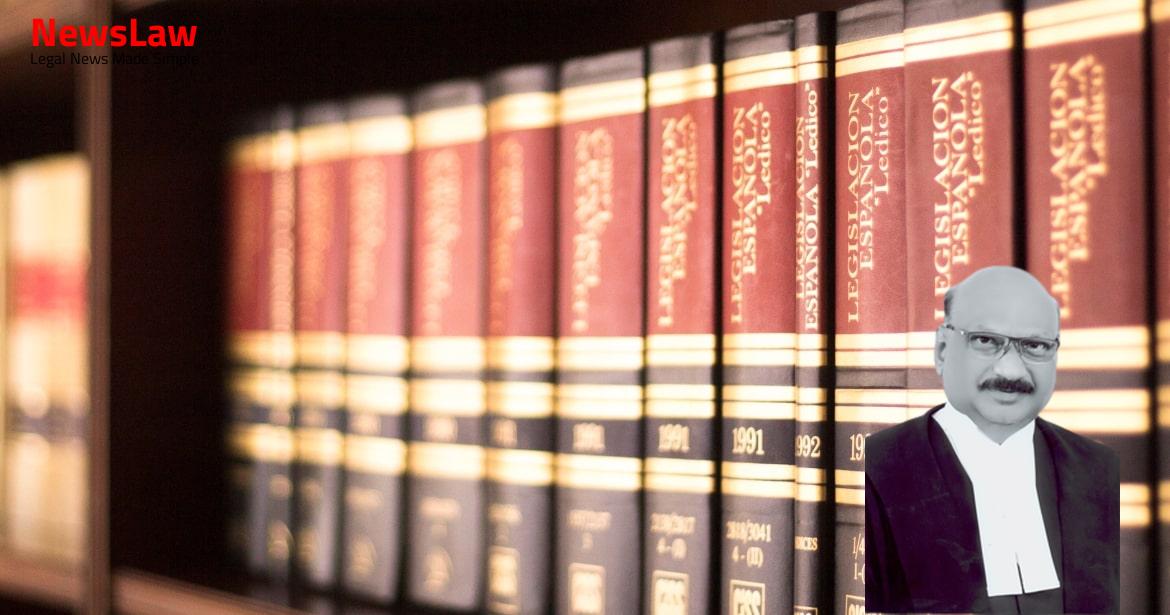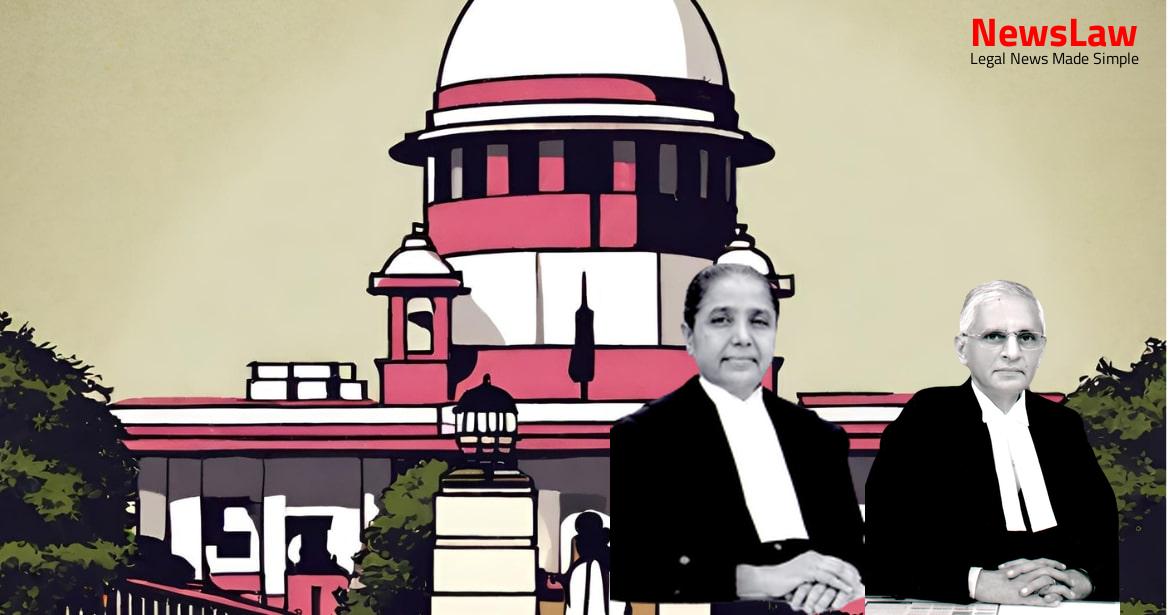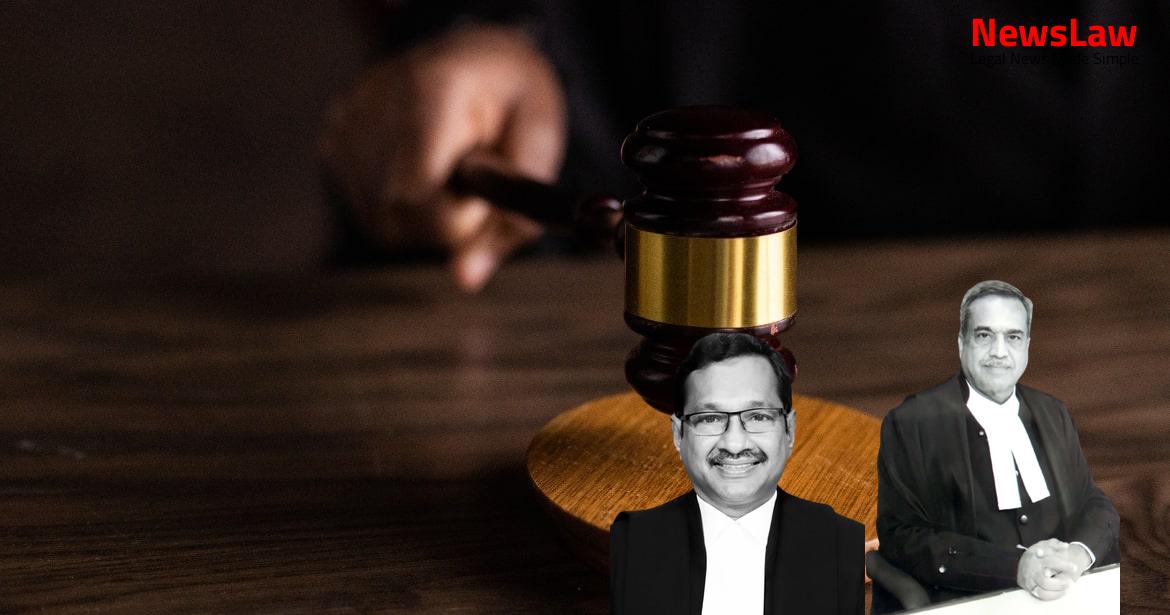In a recent landmark decision by the Supreme Court of India, the case of Original Name vs. Original Name regarding XYZ issue was carefully examined and resolved. The court’s judgement marks a significant milestone in dispute resolution jurisprudence. Let’s delve into the details of this case and understand the implications of the court’s decision. #legalcase #SupremeCourt #disputeresolution
Facts
- Director of Revenue Intelligence received intelligence that assessee had stopped manufacturing pagers.
- Commissioner of Customs passed an Order holding assessee liable to pay Rs. 96,17,498/- with interest and penalty.
- Assessee appealed before CESTAT and Commissioner of Customs appealed before Karnataka High Court.
- High Court held that appeal under Section 130 of Customs Act not tenable before it, should be under Section 130E before Supreme Court.
- Revenue appealed to Supreme Court.
- Assessee submitted list of unutilized items, sought more time to link them to bill of entry.
- CESTAT allowed the appeal, DRI conducted further investigation.
- Commissioner of Customs issued notice to assessee for recovery of duty, interest, and penalty.
- Assessee claimed benefit under Notification No. 30/1997-Customs for exemption of materials imported for manufacturing pagers.
Also Read: Review Petition filed by Landowners against State of Haryana
Issue
- The primary question to be determined is whether the appeal should be admitted
- Parameters are provided to assist in making this determination
- The parameters are not exhaustive and can be applied to the case at hand
- The decision on admission of the appeal will be based on these parameters
Also Read: State vs. Selvamani: Upholding Fair Trial Conduct
Analysis
- Before admitting an appeal under Section 130-E(b) of the Customs Act, the question raised must have a direct nexus to determination of duty rate or value of goods for assessment.
- Cases where there is no majority decision among Judges will be heard based on the point of law they differ on.
- Appeals to the High Court must involve substantial questions of law related to customs duty or goods value.
- The High Court may admit an appeal after 180 days if there was sufficient cause for the delay.
- The High Court formulates the substantial question of law involved in the case.
- Appeals are heard solely on the formulated question, but the Court may consider other substantial questions if necessary.
- The High Court must deliver a judgment on the formulated question and may determine issues not decided by the Appellate Tribunal.
- Appeals specifically concerning duty rates or goods value are heard by a Special Bench as per Section 129-C.
- An appeal to the Supreme Court can be made from High Court judgments on specific grounds.
- Appeals in other matters are to be heard by a Bench consisting of one judicial member and one technical member, subject to the provisions of sub-section (4).
- Sub-section (4) carves out an exception to the general provisions of sub-section (2) and provides that a member of CEGAT sitting singly can hear appeals in specific matters excluding those related to the rate of duty of customs or to the value of goods for assessment.
- The determination of any question relating to the rate of duty or the value of goods for assessment is crucial for the admissibility of an appeal before the High Court under Section 130-E(b) of the Act.
- The statutory definition restricts the definition of the said expression to sub-section (5) of Section 129-D, indicating a direct relevance to customs duty and assessment value.
- Cases involving customs duty or goods value for assessment are treated separately and must be heard by Special Benches due to their broader implications beyond the immediate parties involved.
- The interpretation of ‘relation to’ in the statute is clarified to have a direct and proximate connection to customs duty and goods value for assessment.
- The Supreme Court must handle appeals under Section 130-E(b) of the Act or similar provisions in harmony with the Constitution to address substantial legal issues impacting a wider group of assesses.
- The exceptions outlined in the legislation specify only certain categories where direct appeal to the Supreme Court is allowed, notably cases concerning rate of duty, goods valuation, classification, exemption notification, and enhancement/reduction of goods value for assessment.
- Certain questions raised may require interpretation of the Constitution.
- Only questions of general public importance are required to be decided by the Court.
- The nature of a question must involve issues of law extending to a class of assessees.
- Conditions set by the Court must be satisfied before admitting an appeal under Section 130E of the Customs Act.
- Judgments starting from Navin Chemicals case have clarified the position regarding appeals under Section 130E.
- The recent decision in Steel Authority of India Ltd. Vs. Designated Authority reiterated the same position.
- The High Court was not justified in holding that the appeals were not maintainable under Section 130 of the Customs Act.
- The appeals are considered tenable before this Court under Section 130E of the Customs Act.
- The appeals have been allowed, and the orders passed by the High Court are set aside.
- The appeals are to be reconsidered by the High Court afresh on their own merits.
- The matter is deemed to be purely between the parties and is to be adjudicated based on the available facts.
Also Read: Land Dispute Legal Battle: Vijay Laxman Bhawe vs. P & S Nirman Pvt. Ltd.
Decision
- The case pertains to a dispute between the Petitioner, Original Name, and the Respondent, Original Name, over XYZ issue.
- The court examined the evidence presented by both parties and heard their arguments.
- Upon consideration of the facts and circumstances of the case, the court decided not to award any costs to either party.
Case Title: COMMISSIONER OF CUSTOMS, BANGALORE I Vs. M/S MOTOROLA INDIA LTD.
Case Number: C.A. No.-010083-010083 / 2011



